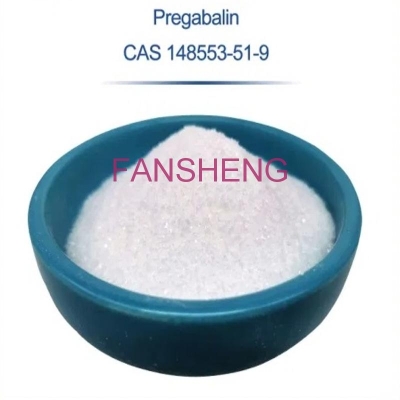-
Categories
-
Pharmaceutical Intermediates
-
Active Pharmaceutical Ingredients
-
Food Additives
- Industrial Coatings
- Agrochemicals
- Dyes and Pigments
- Surfactant
- Flavors and Fragrances
- Chemical Reagents
- Catalyst and Auxiliary
- Natural Products
- Inorganic Chemistry
-
Organic Chemistry
-
Biochemical Engineering
- Analytical Chemistry
- Cosmetic Ingredient
-
Pharmaceutical Intermediates
Promotion
ECHEMI Mall
Wholesale
Weekly Price
Exhibition
News
-
Trade Service
Introduction Kidney stones are a common disease in daily life, and many studies have proven that there is an association between kidney stones and the risk of stroke
.
It is worth noting that the previous study did not analyze the type of stroke, geographical area, and did not clarify the duration of follow-up and the quality of the study.
At the same time, the results of the study were also varied
.
Therefore, can kidney stones increase the risk of stroke? What is the difference in the type of stroke? Recently, Neurol Sci published a meta-analysis
.
In order to evaluate the relationship between kidney stones and stroke risk more comprehensively, the meta-analysis included 7 studies and concluded that the risk of stroke in patients with kidney stones is indeed increased, and the risk of ischemic stroke is the greatest
.
Study design The included studies meet the following criteria: 1.
The study adopted cohort design, case-control or cross-sectional design; 2.
Kidney stones were used as the baseline exposure factor, and stroke was used as the outcome indicator; 3.
The study's effects on kidney stones and stroke The relationship is described by multivariate adjusted risk ratios (HRs), odds ratios (OR), or relative risks (RR), with 95% confidence intervals (95% CI)
.
All studies clarify factors such as study design, source of study population, analysis country and scale, age range or average age, and follow-up time
.
The results of the study were finally included in 7 studies, involving 3,526,808 participants
.
Among them, 3 studies were conducted in subgroups, 3 studies were conducted in Europe, and 1 study was conducted in North America (Canada)
.
Six are cohort studies, and one is a cross-sectional study
.
The follow-up time of the 7 studies ranged from 1.
1 to 12 years, with an average of 7.
6 years
.
Through meta-analysis, the relationship between kidney stones and stroke risk is statistically significantly heterogeneous (I2=79.
6%), so the researchers used a random effects model to multivariately adjust the data HR
.
According to the included studies, compared with people without kidney stones, the risk of stroke in patients with kidney stones is increased (HR, 1.
24; 95% CI, 1.
11-1.
40; P=0.
0001), and after the cross-sectional study is discharged , The risk of stroke is still increasing (HR, 1.
24; 95% CI, 1.
09-1.
40; P=0.
001)
.
The above results are statistically significant
.
In addition, studies in Asia (HR=1.
24; 95% CI, 1.
04-1.
48; P=0.
014) and North America (HR=1.
26; 95% CI, 1.
12-1.
42; P=0.
0001) showed an increased risk of kidney stones and stroke Related
.
However, European studies have found that kidney stones are not associated with an increased risk of stroke (HR=1.
24; 95% CI, 0.
93-1.
64; P=0.
141)
.
Through sensitivity analysis, after excluding studies with a higher risk of bias, the heterogeneity was subsequently significantly reduced, while the risk of stroke in patients with kidney stones increased again (HR=1.
16; 95% CI, 1.
11=1.
23; I2=27.
7%; P=0.
0001)
.
Stratified analysis showed that compared with other strokes, the risk of ischemic stroke was the highest among patients with kidney stones (HR=1.
14; 95% CI, 1.
08-1.
22; I2=15.
6%; P=0.
001)
.
At the same time, patients with a follow-up period of ≥10 years are more likely to have a stroke (HR=1.
18; 95% CI, 1.
10-1.
27; I2=31.
6%; P=0.
001)
.
All of the above indicate that the risk of stroke in patients with kidney stones, especially ischemic stroke, is higher than that of people who do not have kidney stones, and clinicians need to pay attention
.
In the future, the medical community should conduct more large-scale clinical trials to determine the relative impact of kidney stones on the prognosis of stroke
.
References: 1.
YuanM, Zhou HY, Hu F, et al.
Association between kidney stones and risk of developingstroke: a meta-analysis.
Neurol Sci.
2021 Nov;42(11):4521-4529.
.
It is worth noting that the previous study did not analyze the type of stroke, geographical area, and did not clarify the duration of follow-up and the quality of the study.
At the same time, the results of the study were also varied
.
Therefore, can kidney stones increase the risk of stroke? What is the difference in the type of stroke? Recently, Neurol Sci published a meta-analysis
.
In order to evaluate the relationship between kidney stones and stroke risk more comprehensively, the meta-analysis included 7 studies and concluded that the risk of stroke in patients with kidney stones is indeed increased, and the risk of ischemic stroke is the greatest
.
Study design The included studies meet the following criteria: 1.
The study adopted cohort design, case-control or cross-sectional design; 2.
Kidney stones were used as the baseline exposure factor, and stroke was used as the outcome indicator; 3.
The study's effects on kidney stones and stroke The relationship is described by multivariate adjusted risk ratios (HRs), odds ratios (OR), or relative risks (RR), with 95% confidence intervals (95% CI)
.
All studies clarify factors such as study design, source of study population, analysis country and scale, age range or average age, and follow-up time
.
The results of the study were finally included in 7 studies, involving 3,526,808 participants
.
Among them, 3 studies were conducted in subgroups, 3 studies were conducted in Europe, and 1 study was conducted in North America (Canada)
.
Six are cohort studies, and one is a cross-sectional study
.
The follow-up time of the 7 studies ranged from 1.
1 to 12 years, with an average of 7.
6 years
.
Through meta-analysis, the relationship between kidney stones and stroke risk is statistically significantly heterogeneous (I2=79.
6%), so the researchers used a random effects model to multivariately adjust the data HR
.
According to the included studies, compared with people without kidney stones, the risk of stroke in patients with kidney stones is increased (HR, 1.
24; 95% CI, 1.
11-1.
40; P=0.
0001), and after the cross-sectional study is discharged , The risk of stroke is still increasing (HR, 1.
24; 95% CI, 1.
09-1.
40; P=0.
001)
.
The above results are statistically significant
.
In addition, studies in Asia (HR=1.
24; 95% CI, 1.
04-1.
48; P=0.
014) and North America (HR=1.
26; 95% CI, 1.
12-1.
42; P=0.
0001) showed an increased risk of kidney stones and stroke Related
.
However, European studies have found that kidney stones are not associated with an increased risk of stroke (HR=1.
24; 95% CI, 0.
93-1.
64; P=0.
141)
.
Through sensitivity analysis, after excluding studies with a higher risk of bias, the heterogeneity was subsequently significantly reduced, while the risk of stroke in patients with kidney stones increased again (HR=1.
16; 95% CI, 1.
11=1.
23; I2=27.
7%; P=0.
0001)
.
Stratified analysis showed that compared with other strokes, the risk of ischemic stroke was the highest among patients with kidney stones (HR=1.
14; 95% CI, 1.
08-1.
22; I2=15.
6%; P=0.
001)
.
At the same time, patients with a follow-up period of ≥10 years are more likely to have a stroke (HR=1.
18; 95% CI, 1.
10-1.
27; I2=31.
6%; P=0.
001)
.
All of the above indicate that the risk of stroke in patients with kidney stones, especially ischemic stroke, is higher than that of people who do not have kidney stones, and clinicians need to pay attention
.
In the future, the medical community should conduct more large-scale clinical trials to determine the relative impact of kidney stones on the prognosis of stroke
.
References: 1.
YuanM, Zhou HY, Hu F, et al.
Association between kidney stones and risk of developingstroke: a meta-analysis.
Neurol Sci.
2021 Nov;42(11):4521-4529.







